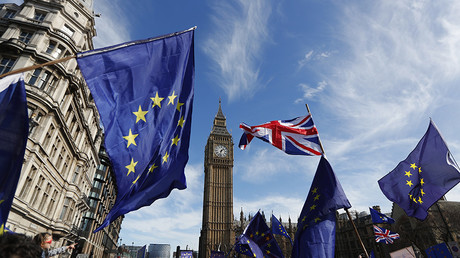“Our hypothesis was that maybe it’s more nuanced than that,” Mr. Grayson said. “People have said, ‘I don’t trust advertising.’ The truth is, there is a lot of advertising that they do trust.”
Certain tactics, such as offering to match a competitor’s low prices, reporting a high rating on a site like Amazon or Yelp or mentioning a recent ranking by a third-party source like U.S. News World Report, received the most positive reactions from participants. Others, like using paid actors instead of real people, or even hiring celebrity endorsers to express their affinity for a product, came off as “deceptive” or “manipulative,” according to those surveyed.
Jake Sorofman, who analyzes marketing trends as a vice president and chief of research for Gartner for Marketers, a research and consulting firm, said brands should already be recognizing that the “persuasion by way of manipulation” approaches of the past were not going to work on modern consumers.
“Consumers are certainly becoming more savvy, more skeptical, more discriminating,” Mr. Sorofman said. “They expect a lot more, and that’s putting pressure on marketers to do better.”
Chris Raih’s conclusion is that consumers are willing to play along, as long as brands play fairly. Mr. Raih, the founder and president of Zambezi, a Los Angeles ad agency, wrote an essay for AdWeek in January about combating the “atmosphere of disbelief” that he felt had pervaded society. He argued that brands needed to better use their platforms to bridge gaps, communicate and inspire.
“We do see more nuance than what is reported,” Mr. Raih wrote in an email. “Look, today’s audience is more sophisticated than ever before. They know how the machine works. They know why Facebook ads retarget them based on previous searches. They know why brands buy space on certain programming. The mystique is gone.”
Though the study demonstrated that all approaches are not equally unscrupulous in the eyes of consumers, some advertisers are trying to look beyond antiquated tactics for better ways to engage with people.
Newsletter Sign Up
Continue reading the main story
Thank you for subscribing.
An error has occurred. Please try again later.
You are already subscribed to this email.
“We’re advising our clients on the importance of ‘proving’ over ‘selling’ brand values,” Adam Tucker, president of Ogilvy Mather New York, wrote in an email. “Across the industry, we’re seeing brands evolve their marketing communications to be more engaging, more participatory and, ultimately, more personalized.”
Advertisement
Continue reading the main story
Mr. Shani said the study reaffirmed his contention that people were looking foremost for authenticity from companies. Establishing that takes time; he compared it to putting money into an individual retirement account, where the dividends do not pay off for years.
“Authenticity is not a metric,” Mr. Shani said. “It’s the feeling you always get when you see a brand.”
The researchers did not distinguish between age groups. Nor did they break down the tactics by presentation — print, digital or television — choosing to keep the formatting ambiguous.
“There’s a lot of marketers out there that are trying to trick people,” Mr. Grayson said. “They’re willing to cheat consumers on the edges, such as by keeping the price the same but decreasing the food that’s in the package by imperceptible amounts. We do have to go around with a certain amount of vigilance.”
An important point, Mr. Isaac said, is that consumer disbelief about certain tactics can also be fluid. Some approaches deemed disreputable a few years ago could become more widely accepted. Product placements and native advertising — packaged to look like journalism — are two examples.
“I think the jury’s out,” Mr. Sorofman said, referring to native ads as manipulative. “But the best practices tend to ensure there’s transparency. As long as there is transparency in the intent.”
Asked what he felt about the “atmosphere of disbelief,” Mr. Shani said he still wanted to double-check the researchers’ work. “Did he mean credible or not credible?” Mr. Shani joked.
But the researchers hope that advertisers can embrace some bit of good news and home in on what they have demonstrated can work.
“I think there’s a lot of bias out there that marketers already think they’re behind the 8-ball a little bit, where consumers already think we’re out to get them,” Mr. Isaac said. “And that may not be the case. They might actually be starting from a greater position of strength than they think.”
Continue reading the main story
Article source: https://www.nytimes.com/2017/07/30/business/media/consumers-may-be-more-trusting-of-ads-than-marketers-think.html?partner=rss&emc=rss







